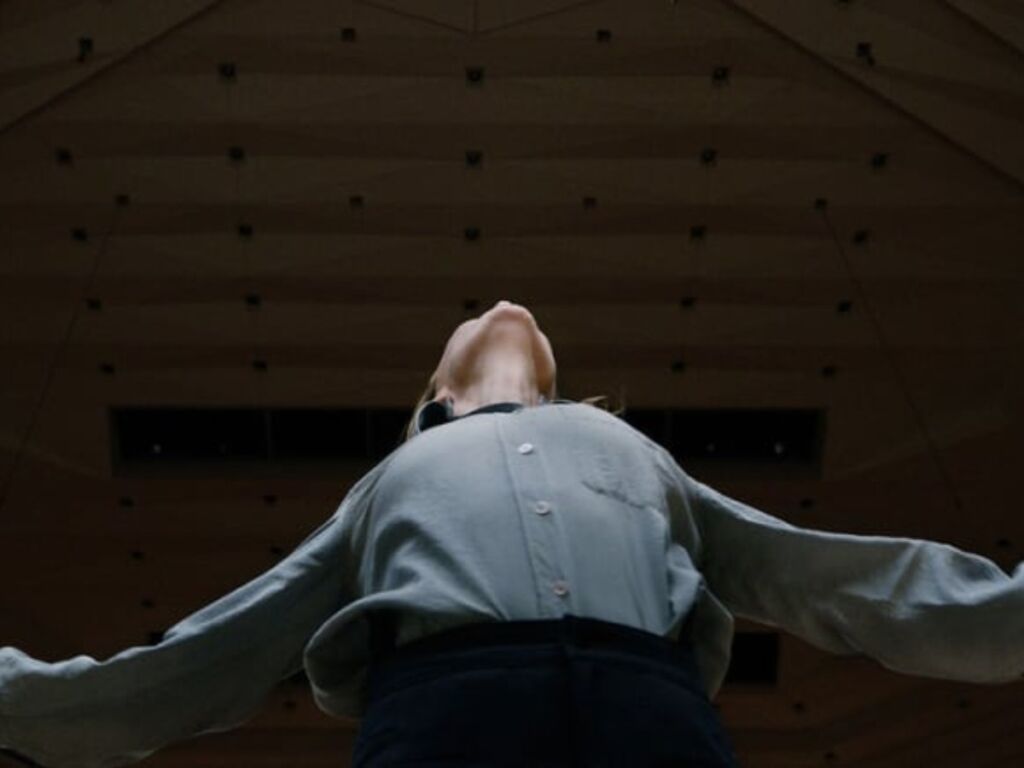‘Tár‘ marks the return of filmmaker Todd Field to the director’s chair after more than a decade. And what a triumphant return it has been! Todd Field’s cancel culture movie starring Cate Blanchett has been nominated for six Academy Awards, including Best Picture and Best Actress. ‘Tár‘ stars Cate Blanchet as Lydia Tár, a ferociously gifted composer-conductor.
Lydia Tár’s life begins to unravel when deep-buried secrets about her past begin to surface and drive her mad. The film has reopened the conversation about gender dynamics of the #MeToo movement, asking if we can overlook misbehavior in favor of legacy. The ending of ‘Tár’ is a gut punch of a conclusion we’ll explore in the following article.
Related: ‘The Fabelmans’ Ending Explained: What Does The Final Shot of Steven Spielberg’s Movie Mean?
‘Tár’: The Artist As An Abusive Master

Lydia Tár (Cate Blanchett) is a master composer at the peak of her powers. She is the first female chief conductor of the Berlin Philharmonic, days away from a live recording of Mahler’s Fifth Symphony and publishing her book ‘Tár on Tár.’
For Lydia, life is music in which she not only lives, breathes, and eats but also engages in her industry’s external social and political dynamics with a methodical sound and fury. She does everything from composing to keeping score with the same fiery passion.
Lydia Tár is a woman who has it all with more to come. But like all celestial geniuses, she’s harboring terrible guilt. There’s always a concerto of calamity playing in the back of her mind and in the depths of her eyes.
Lydia remains haunted by a former student, Krista. While preparing for her next concert, she takes a liking to Olga, a young Russian cellist. We discover that behind Lydia’s prodigious temperament has a dark history of sexual abuse and emotional gaslighting.
Things start to fall apart when Lydia’s affection for Olga undermines her upcoming performance. It upsets her wife, Sharon (Nina Hoss), and assistant Francesca (Noémie Merlant), but she risks it all for another potentially unethical relationship. Soon, she’s cold-showered into the reality of her life when Krista kills herself.
In Case You Missed: ‘Tár’ Star Cate Blanchett Calls Out Cancel Culture
‘Tár’ Ending Explained: The Punishment Fits The Crime

Soon, Lydia loses her family and her work. She locks herself in her old studio, increasingly alienating herself from reality. Already on the verge of a breakdown, she attacks her substitute conductor on the stage, finally losing everything she has built for herself.
Advised to lay low, she finds composing work in the Philippines. We follow her descent to the lowest depths as she tries to keep the flame alive. But it’s all gone. As Lydia takes the stage for a conducting gig in nowhere, the camera pulls back and reveals she’s been composing music for a crowd of Monster Hunter cosplayers.
‘Tár‘ is a film that infuriates people because it doesn’t provide answers. With only floating images to make assumptions, it’s on the audience to find the degree of Lydia’s predatory behavior. Except, towards the end, Todd Field’s intention becomes clear. The film is a lethal mix of power and prestige with physical and psychosexual violence, with the guilty getting what the guilty deserve.
Yes, she’s still a working musician doing what she loves, but it’s over for her. Once serving the classical music elite, she now plays video game soundtracks to a crowd of nerds. That is the death of Lydia’s Tár, to have to live with being mediocre. ‘Tár’ is a symphony not brought to a satisfying close but a galumphing halt.
You Might Also Like To Read: Is Cate Blanchett Starrer ‘Tár’ Ready To Sweep All Major Awards?






